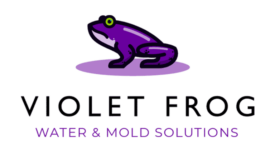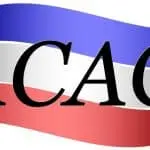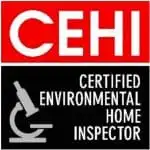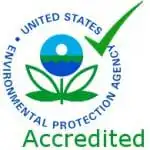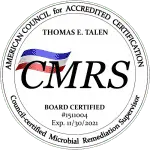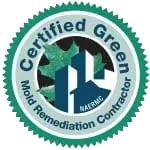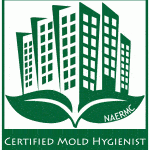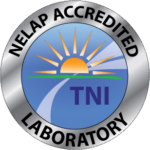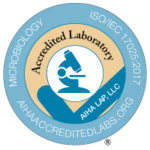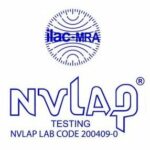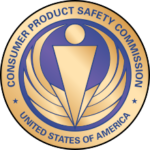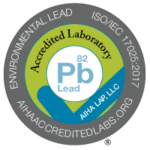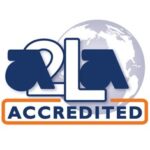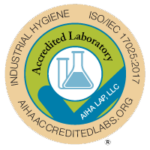See that little patch on your wall? It’s not just about aesthetics. Breathing in those sneaky spores can lead to annoying health issues like allergies. And over time mold can really do a number on your property. It’s not just a ‘clean it later’ problem. Addressing mold promptly can save you a lot of trouble down the road. So, next time you spot it, give it the attention it deserves. If you’re looking to identify mold in your home in Atlanta, understanding the local factors that contribute to its growth is crucial.
Beyond mere aesthetic concerns, mold’s ominous spread on walls, ceilings, and hidden corners is an alarming indicator of deeper issues. This isn’t just about unsightly patches marring the beauty of a room. In a place like Atlanta, where the humidity often hangs heavy in the air, the early identification of mold is synonymous with preventing potential structural damages and staggering remediation costs. Moreover, it’s a frontline defense against the health complications mold can unleash upon unsuspecting residents.
Combat mold with Atlanta’s trusted professionals at Violet Frog.
Why Does Mold Grow
In Atlanta, the balmy summers and consistent humidity are a veritable invitation for mold to thrive. This bustling city, frequently cloaked in heat and dampness, becomes a playground for mold spores to flourish. Those shadowy basements, damp crevices in bathrooms, or attics missing good ventilation? They’re top-tier spots for these uninvited nuisances. It’s a confluence of factors: the city’s atmospheric conditions, combined with those dark, damp areas in homes, that create this perfect storm.
Atlanta’s weather, characterized by its sudden rain showers and thunderstorms, often takes residents by surprise. Such unexpected downpours can lead to leaks, especially in older homes with weathered roofing or less-than-perfect insulation. When these leaks meet the city’s naturally high humidity and pockets of stagnant air in homes, the result is an environment where mold doesn’t just survive; it thrives.
Health Impacts of Mold
Mold, with its unsightly appearance, can easily be dismissed as a mere cosmetic problem. Underneath its patchy exterior are hidden health hazards. Continuous contact with mold can quietly compromise our well-being, resulting in respiratory issues, setting off allergies, and prompting skin discomforts. Essentially, it’s a silent assailant, compromising our well-being one spore at a time.
Within Atlanta’s diverse demographic, specific segments are more susceptible to the harmful effects of mold. The elderly, with their waning immune defenses; young children, whose immune systems are still developing; and individuals with pre-existing health conditions or compromised immune systems, are at heightened risk. For these vulnerable groups, a mold-infested environment isn’t just uncomfortable; it’s potentially hazardous.
Visible Signs of Mold
Mold has quite the knack for blending in. While many in Atlanta might recognize the notorious black mold often lurking in basements, this sneaky intruder wears many colors. Whether it’s the pale green shade you spot on your shower curtain or the orange tinge on forgotten bread, these color variations signal mold’s unwanted stay. Now, when it comes to mold and mildew, it’s easy to mix them up. Both are fungi that no homeowner wants to deal with, but they aren’t twins. Mildew tends to be a surface dweller, something you can typically handle with store-bought cleaners. Mold, on the other hand, is the more stubborn sibling. It digs deep, potentially harming structures and bringing along notable health concerns. In our fight against these fungal foes, being informed is half the battle.
The distinct aroma of old, damp basements is unmistakable, and in a place like Atlanta, where the air has more moisture, it’s a scent all too familiar. But when this scent permeates through your home, lingering in the air, refusing to dissipate, it’s more than just a nostalgic reminder of rainy days gone by. It might be indicative of a mold issue lying beneath the surface. That persistent musty aroma isn’t merely an olfactory nuisance; it’s an alert, a beckoning to homeowners that there’s an unseen menace that needs addressing.
Not all signs of mold are seen. Sometimes, they’re felt. It’s the sudden flare-up of allergies, the unexplained bouts of sneezing, or the persistent itch in your eyes that just won’t subside. For many, these symptoms can easily be dismissed as seasonal allergies, especially during Atlanta’s pollen-heavy springs. However, when these symptoms persist indoors, it’s time to consider that they may be your body’s alarm bells, warning you of an underlying mold issue.
Surprising Places Mold Hides
Mold testing in Atlanta is crucial due to the stealthy nature of mold, which often thrives in overlooked areas of our homes. For instance, the recent rainstorm might have caused an unnoticed leak behind wallpaper, or a spill on the carpet might not have been dried properly. Even HVAC systems in Atlanta homes can spread mold spores if not properly maintained. Mold prefers not just obvious damp areas, but also hidden nooks, making its detection a challenge.
This is especially true for items like a cherished armchair with generations of history or a retro refrigerator that’s been a kitchen staple for years. These items, though full of memories, can become hidden mold havens due to undetected spills, humidity, or wear and tear. Without proper mold testing in Atlanta, these beloved household items could transform from treasured possessions into potential health risks.
Professional Mold Testing
While DIY methods can be helpful, there’s no substitute for professional insight when it comes to mold detection. The specifics of Atlanta’s environment require specialized knowledge and tools. For those keen on a thorough check, turning to services that specialize in Mold Testing in Atlanta is a prudent choice. With expert assessment, you not only pinpoint mold’s presence but also gain insights into prevention and remediation.
Sometimes, even the most vigilant Atlanta homeowner might feel out of their depth. Mold, with its knack for concealment, can sometimes evade even the most thorough searches. If you’ve scoured every nook and cranny, sniffed out every suspicious scent but still can’t pinpoint the source, it’s time to summon the professionals. With their expertise and specialized equipment, they can delve deeper, ensuring that no mold remains undetected. If mold suspicion looms in your Atlanta residence, but its exact whereabouts elude you, it might be time to bring in specialized expertise.
Not all mold issues are immediately visible, and some might require advanced detection techniques. For an in-depth understanding and specialized mold testing services in Atlanta, our Mold Testing Atlanta page provides a wealth of information and assistance. Experts come equipped with an arsenal of tools, from swab tests that pick up mold samples for laboratory analysis to infrared cameras that detect temperature discrepancies in walls, hinting at possible mold growth. These professionals leave no stone unturned, ensuring that every potential mold hideout is uncovered.
DIY Mold Detection Tips
Tools like moisture meters and home testing kits can be invaluable allies for Atlanta homeowners in their quest to identify mold in their home. If you’re unsure about the presence of mold, it might be worth consulting experts who can guide you through the process. For more specific advice and services, don’t hesitate to check out our Mold Testing Atlanta services.
Mold isn’t just unsightly; it’s potentially harmful. When embarking on a personal mold detection journey, it’s vital to prioritize safety. Wearing protective gloves, ensuring you’re equipped with a mask to prevent inhalation of spores, and keeping rooms well-ventilated as you work can make the difference between a safe inspection and a hazardous one.
Mold isn’t just a concern for homeowners. Those renting properties in Atlanta are equally at risk, especially if the rental has been previously occupied or hasn’t been maintained well. It’s crucial to be aware of your rights and how to tackle mold issues in such situations. For renters seeking guidance, our article on mold in rentals provides valuable information on addressing and preventing mold in leased properties.
Preventing Mold Growth
Prevention, they say, is better than cure. Proactive measures can save homeowners many headaches. Address leaks immediately, dehumidify damp spaces, and ensure proper ventilation. If you’re keen on diving deeper into preventive strategies, our article on “Top Tips to Keep Your Living Spaces Mold-Free” offers valuable insights.
In a city like Atlanta, where the air is often heavy with moisture, controlling indoor humidity levels becomes paramount. Simple steps, like ensuring bathrooms are equipped with exhaust fans or using dehumidifiers in basements, can be game-changers. It’s about creating an environment where mold simply can’t take hold.
A mold-free home in Atlanta is more than just a badge of diligent homeownership. It’s a testament to a safe, healthy environment where families can thrive without the lurking threat of mold-related health issues. Mold might be persistent, but with vigilance, information, and timely action, it’s a battle Atlanta homeowners can win. The goal is clear: identify mold in your home, tackle it head-on, and ensure the sanctity of your living space. In the heart of Georgia, make your Atlanta residence a mold-free haven.
Protecting Your Sanctuary with Violet Frog
A mold-free home isn’t just a dream—it’s a reality that Violet Frog can help you achieve. For years, we’ve been Atlanta’s trusted ally in the fight against mold, ensuring homes are not only beautiful but also safe. Don’t let mold steal your peace of mind. Let Violet Frog be your guiding light in maintaining a healthy, mold-free environment. Take action today, reach out to us, and let’s ensure your home remains the sanctuary it was always meant to be. [link to contact]
